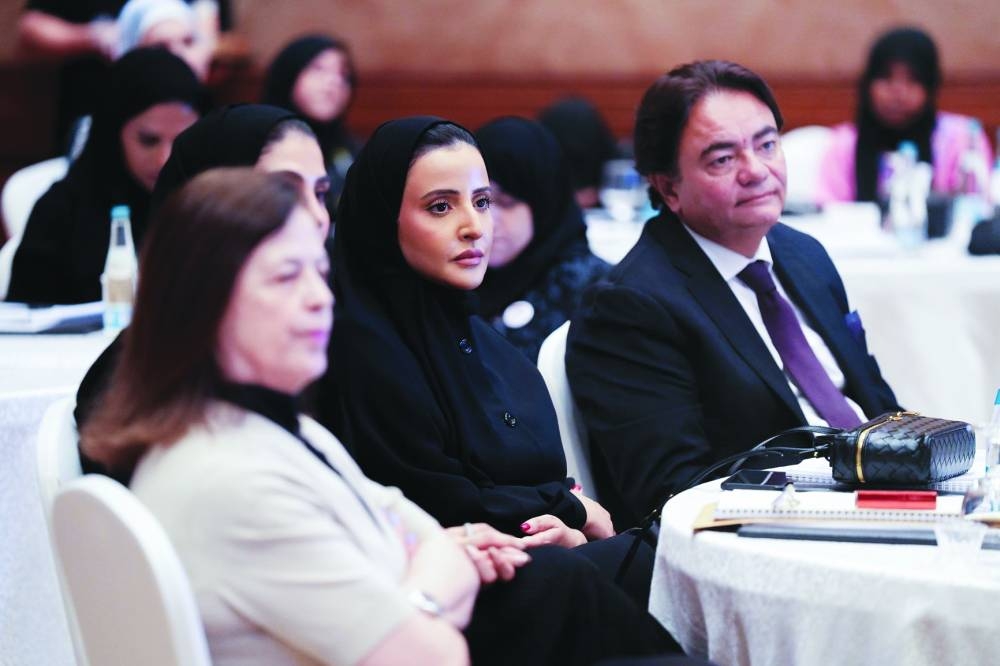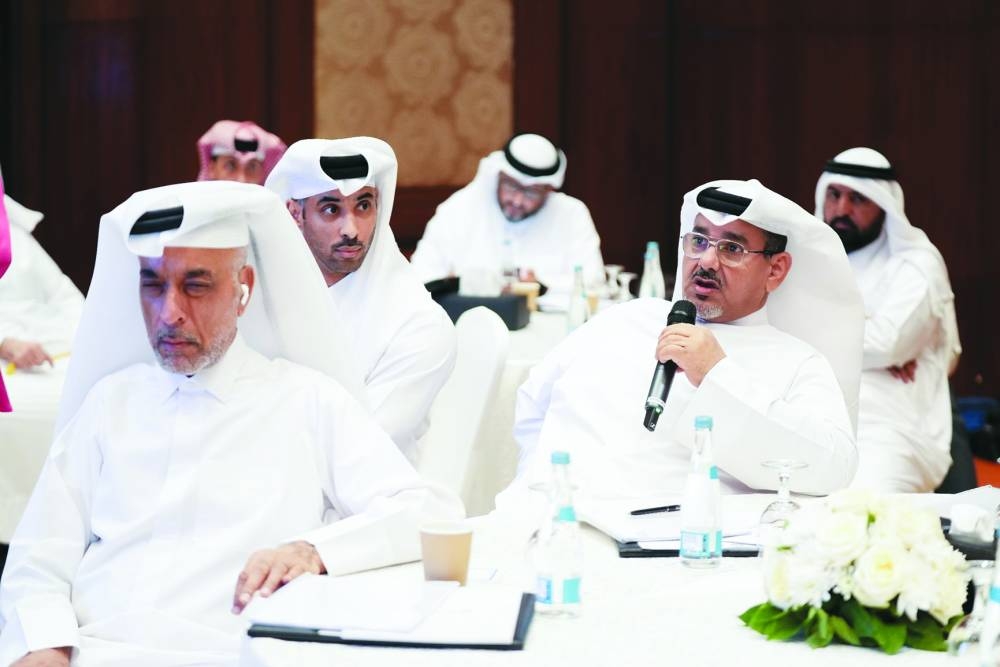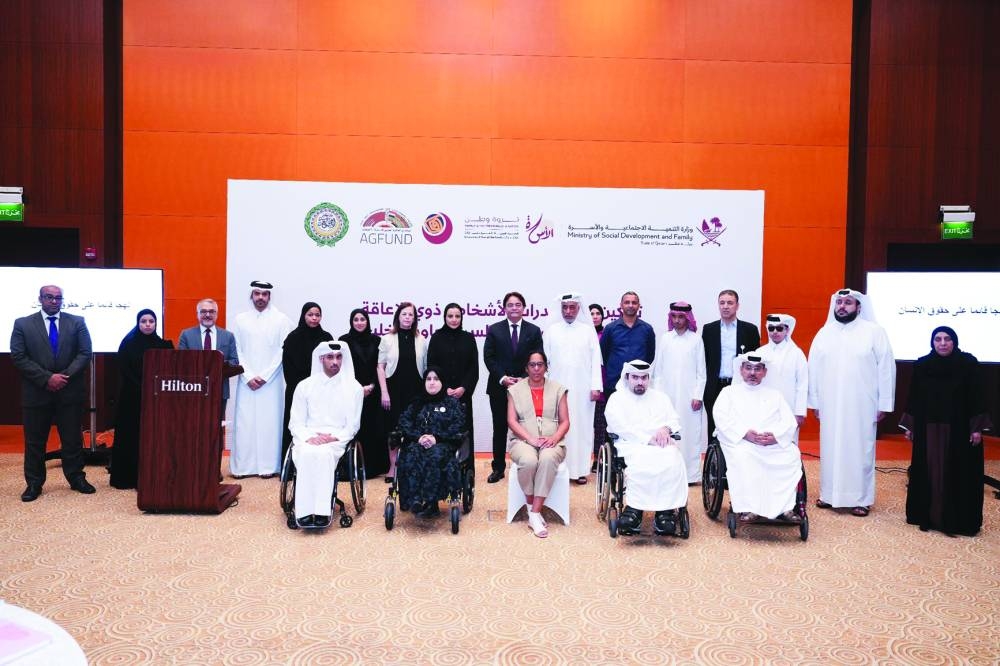A training course organised in cooperation between the Ministry of Social Development and Family (MSDF), the League of Arab States, the Arab Organization for Persons with Disabilities (AOPD), and the Arab Gulf Program for Development (AGFUND), under the "Empowering and Building Abilities of Disabled Persons in the Gulf Cooperation Council" project began Sunday.
The program will last for three days with the participation of 20 persons with disabilities in the country.
The course, which seeks to develop and enhance the participants' communication skills and raise awareness of the rights of persons with disabilities, covers several topics, the most important of which are: "Human Rights-Based Disability Methodology," and "Mechanisms for Integrating Persons with Disabilities in Qatar." "The Convention on the Rights of Persons with Disabilities and the Mechanism for Preparing Periodic Reports," "Linking the Convention on the Rights of Persons with Disabilities to the Sustainable Development Goals Central to the 2030 Agenda", "The Second Arab Decade for Persons with Disabilities," and "An Introduction to the Third World Disability Summit and Topics Important to Include in the Summit,".
HE Assistant Undersecretary for Family Affairs, MSDF, Sheikha Sheikha bint Jassim Al-Thani said that the "Empowering and Building Abilities of Disabled Persons in the Gulf Co-operation Council" project is an ambitious project that aims to enhance the full participation of persons with disabilities by contributing to building an aware social system that has the capabilities to make decisions for them in their countries, and training on implementing the provisions of the relevant agreements.
She added that empowering persons with disabilities is a common goal for GCC member states based on involving stakeholders in decision-making and policies in their countries. She stressed that this requires providing training in capacity building to enhance effective participation and create links between all categories of persons with disabilities in GCC countries, enabling them to exchange experiences and adopt best practices at the national, regional and international levels.
HE Sheikha Sheikha al-Thani pointed out that Qatar seeks to enhance the comprehensive integration approach for persons with disabilities with more empowerment through an approach that allows them to participate effectively in all aspects of life, like other individuals and social groups, in addition to enabling them to participate effectively and positively in economic, social and cultural life.
She explained that Qatar relied in this approach on important national legislative pillars, in addition to relevant international and regional agreements and standards, most notably the Permanent Constitution of Qatar, which included articles that guaranteed the rights of persons with disabilities, the provisions of which were approved in the Law on Persons with Special Needs to ensure equality and non-discrimination.
She explained that Qatar National Vision 2030 came to reinforce these constitutional rights by adopting a comprehensive vision for development, which aims to transform Qatar into an advanced country capable of achieving sustainable development, noting that the state has established many mechanisms that work according to these strategies, the most important of which is the National Committee for Women, Children, Elderly, and Persons with Disabilities Affairs.
Regarding Qatar's efforts at the international level, the Assistant Undersecretary for Family Affairs at MSDF said that the State of Qatar was one of the first countries to ratify the Convention on the Rights of Persons with Disabilities (CRPD) in 2008.
She expressed her confidence that the training course will contribute to enhancing the participants' capabilities to play active roles in spreading knowledge of the rights of persons with disabilities, acquiring the required skills in preparing parallel reports and building bridges between them, and acquiring communication skills with official and governmental bodies and other social segments, which will contribute to generalizing and consolidating the culture of the CRPD and taking into account its provisions within the applications of the Sustainable Development Goals.
She also expressed her hope that this training would support the efforts of the GCC countries to overcome obstacles facing persons with disabilities and raise awareness of these obstacles and the mechanisms available to address them. She stressed that this requires comprehensive solutions through concerted efforts between countries, institutions and stakeholders to adopt the best experiences and expertise.
She stressed that Qatar seeks, with its partners, to overcome all challenges facing persons with disabilities and achieve their aspirations for a decent life and the necessary protection in all circumstances, and to ensure their full participation in society without barriers.
In this context, she noted that the State of Qatar, within the framework of enhancing regional and international cooperation efforts, has announced hosting and organizing the Fourth World Summit on Disability in Doha in 2028, in cooperation with the International Disability Alliance. She stressed that the summit is an important occasion to coordinate all efforts towards a better future for persons with disabilities.
In turn, Head of the Technical Secretariat of the Council of Arab Ministers of Social Affairs, Tariq Al Nabulsi, praised Qatar's support for Arab efforts to promote the rights of persons with disabilities, stressing the importance of the training course that enhances the rights of this important group in society.
In addition, Director General of the Arab Organization for Persons with Disabilities, Jahda Abu Khalil, said that this course falls within the organization's project to empower and build the capacities of persons with disabilities in the GCC countries to ensure full participation in decision-making in their countries, and the proper implementation of agreements related to their rights.
Abu Khalil touched on the importance of the Fourth World Summit on Disability scheduled for Doha in 2028, expressing her confidence that the State of Qatar will play a leading role in preparing for this summit in cooperation with the International Disability Alliance.
The first training course within the "Empowering and Building Abilities of Disabled Persons in the Gulf Cooperation Council" project was held in Kuwait from Oct. 1 to Oct. 3.



